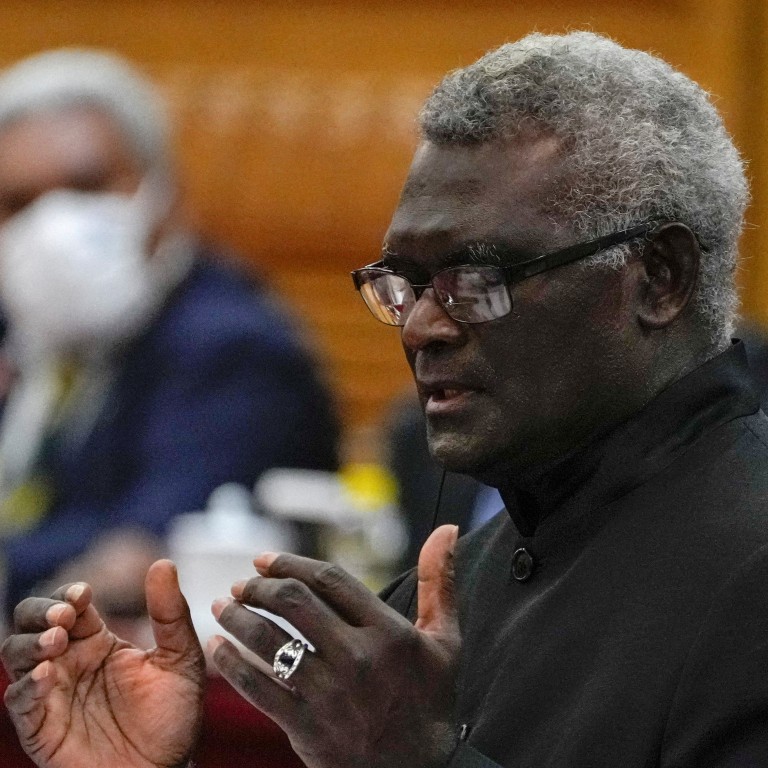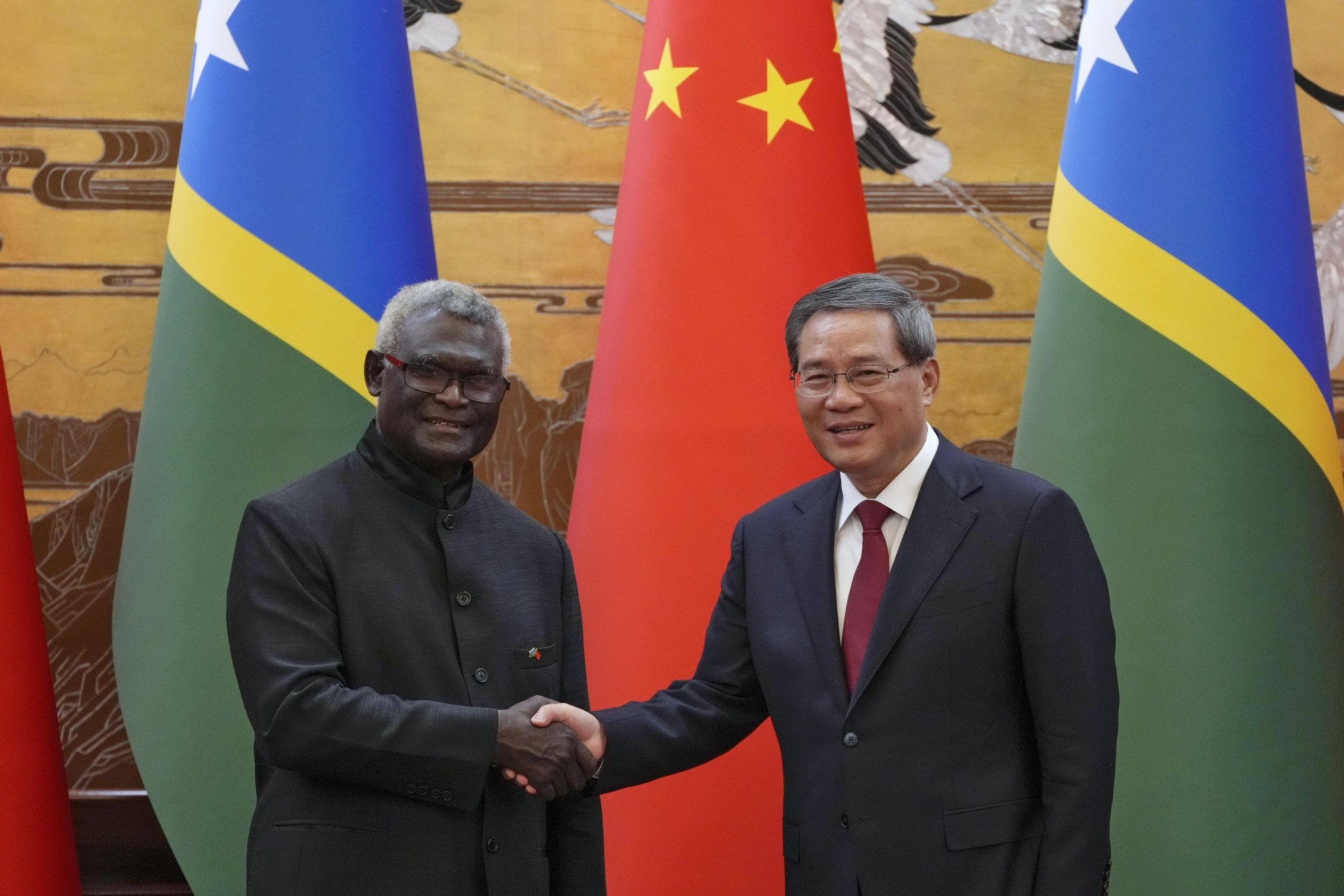
Solomon Islands’ pro-China PM fails to secure outright majority in election
- Manasseh Sogavare’s Our Party has won 12 seats with six contests still in play, well short of a majority in the 50-seat parliament
- His two main rival parties – sitting on 12 seats between them – have both expressed a desire to wind back China’s influence if they form a government
Manasseh Sogavare’s Our Party has won 12 seats with six contests still in play, according to provisional results reported by the public broadcaster – well short of a majority in the 50-seat parliament.
Coalition negotiations will be closely watched from afar, with major consequences for Beijing’s push into the South Pacific.
Sogavare signed a security pact with Beijing in 2022, and has overseen the rapid expansion of Chinese interests across the archipelago.
His two main rival parties – sitting on 12 seats between them – have both expressed a desire to wind back China’s influence if they form a government.

The balance of seats are held by an unpredictable collection of independents and minor parties.
Locals have a home-grown term – “grasshopper” – for the undeclared politicians who bounce around coalition talks trying to shop their vote.
Election time can be a tense affair in Solomon Islands, given the post-vote rioting that has plagued the country in the past.
Police quelled a small outbreak of violence between two villages on the island of Malaita over the weekend, sparked by an election result.
A band of men damaged a “water source, church building, and dwelling houses” in a neighbouring village after votes did not go their way, police said.
In the coming days, politicians with common interests will start to coalesce into “camps” based in Honiara’s casinos and hotels – seeking to form a ruling majority.
Only once the dust has settled from this process, which could take days or even weeks, will a prime minister emerge.

.png?itok=arIb17P0)